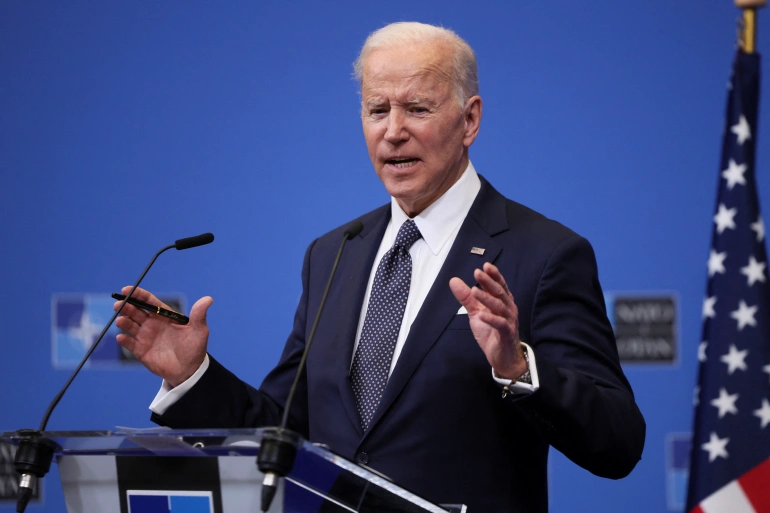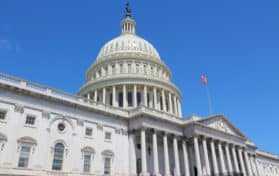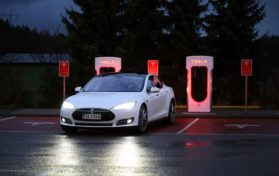
On Monday, President Biden presented his FY 2023 budget request to Congress. He spoke to the media regarding the chief components of the proposed $5.8 trillion request.
Multiple news outlets have spotlighted a new tax on the top 0.1 percent of earners, chiefly those with a net worth of $100 million or more. The tax would require these individuals to pay “at least twenty percent in taxes” on not only their income but, in an area concerning some individuals, unrealized gains in stock portfolios and other investments. Even Elon Musk tweeted regarding the proposed change: “Eventually, they run out of other people’s money, and then they come for you,” which echoes middle-class taxpayer’s concern that small gains they might have in stocks might eventually be taxed.
Other primary points in the budget include:
- $813 billion for national defense
- $287 million for the Justice Department’s Anti-trust Division
- $491 for the Federal Trade Commission
- $45 billion devoted across various agencies to fight climate change
- $127 billion for pandemic-related issues
- nearly $100 billion for infrastructure
There is also $15 billion set aside for election issues, including $5 billion set aside for the United States Postal Service so that underserved areas could increase delivery capability and provide “support for vote-by-mail, including making ballots postage free and reducing the cost of other election-related mail.”
After the 2020 election, many Americans do not support vote-by-mail for any reason, however.
National Defense Breakdown
FY 2022’s national defense budget is $782 billion, so, particularly when accounting for inflation, Biden’s request only increases the defense budget by about 1.5 percent. Many Congressional lawmakers have pushed for an increase of between five and seven percent.
Of the $813 billion requested, Joe Biden intends to allocate $773 billion for the Pentagon. The monies are intended to invest in the nation’s “nuclear triad” as well as in building a new long-range stealth bomber as well as nuclear-powered submarines. Naval shipyard upgrades are also a priority, as are building up hypersonic weapons and “the defense industrial base.”
$682 million would be allocated to Ukraine, $1.8 billion would be set aside to expand the presence of the U.S. military in “the Indo-Pacific region,” which could signal that the Biden Administration expects Chinese movement on Taiwan in the coming year.
Another $6.9 billion would fund a European Deterrence Initiative, which has been in place in Eastern Europe in order to promote security in the area.
Anti-trust Enforcement
Biden’s budget proposal requests significant increases to both the Justice Department and the Federal Trade Commission. These increases come at a time when the DOJ is legally battling tech giants such as Google; Apple could be sued later this year. The FTC is currently investigating Amazon, and the agency has sued Meta.
Biden’s budget proposal is likely intended to back up the executive order the president signed last summer to combat anti-monopoly and anti-trust issues within major corporations.
$45 billion for Climate Change Issues
While the Green New Deal itself died in Congress, largely in thanks to Senators Joe Manchin (D-WV) and Kyrsten Sinema (D-AZ), Biden’s new budget proposal would devote quite a bit of money to combating climate change. $18 billion would be allocated to multiple agencies to provide aid for “worsening wildfires, floods, and storms fueled by rising (global) temperatures.”
Other notable allocations include $11 billion to assist other nations across the globe in transitioning to cleaner energy, $17 billion for climate research, and $1.5 billion for “low-income areas and communities of color that have suffered disproportionately from pollution.”
More COVID-19 funding and Infrastructure Allocations
$127 billion would be set aside for the Department of Health and Human Services for “pandemic preparedness” as well as “public health surveillance.” $28 billion would be allocated to the CDC to “overhaul its health data” and $12.1 would go to the National Institute of Health for vaccine-related research as well as treatments for biological threats.
$68 billion would be allocated to fixing roads and bridges as well as boost the electric vehicle charging infrastructure while also strengthening the current electric infrastructure against inclement weather, such as uncharacteristically long periods of freezing cold or hurricanes and tornadoes.





